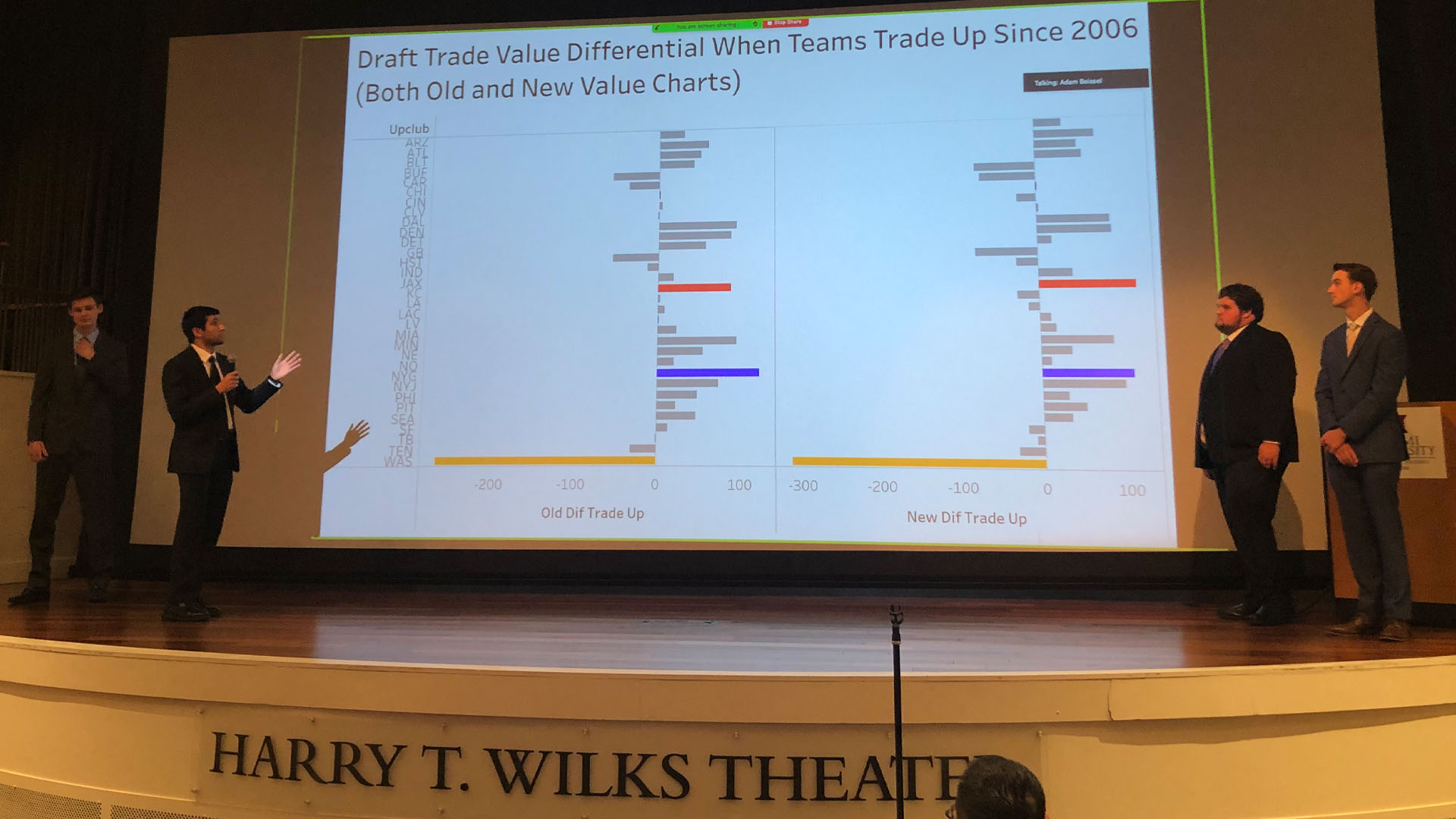Sport Analytics Summer Academy transforms Miami students into data scientists


When the Sport Analytics Summer Academy students took the stage of Wilks Theatre, they walked on as data scientists prepared to present key metrics and new insights to several prominent athletic organizations.
Among those in attendance were representatives from the Cincinnati Bengals, the Cincinnati Reds, the Columbus Blue Jackets, and more.
Each organization was interested in using this information to improve player performance and business outcomes, but they were also on hand to offer constructive feedback and to help prepare these students to work with similar organizations in the future.
“This was an incredible opportunity,” says Miami University finance major Caroline Brega ‘22. “It's not every day that you get to work with a professional sports team and use the data they have, as opposed to just learning from a textbook. That’s not something [most] students get to experience before they go into the professional sports world.”
On stage, the students offered data-driven findings on NFL draft trends and trade values, ideal performance metrics for top college volleyball players, and the evolving demographics of NHL season ticket purchasers, as well as successful social media strategies for university athletic programs, and more.
These presentations served as the culminating event for the inaugural Sport Analytics Summer Academy, which is offered through Miami University’s new Department of Sport Leadership and Management (SLAM). The academy provides an in-depth and hands-on learning experience that highlights the ways in which data now influences virtually every aspect of the sport industry.

Adam Beissel,
Assistant Professor and Director of Undergraduate Studies
“Analytics is completely transforming the way we watch and play sports,” says SLAM Assistant Professor Adam Beissel. “It’s the future within the industry. And we get our students to think about what's next, what's coming.”
The academy is further enhanced through cross-campus interdisciplinary partnerships with Miami’s Farmer School of Business and the College of Arts and Sciences.
Inside the classroom, students take intensive four-week courses that cover data visualization, regression modeling, regression analysis, SQL, and database programming.
Outside the classroom, they also apply their knowledge by partnering with internal and external sport organizations. Their objective is to help these organizations identify inefficiencies and make better business decisions.
“I’m a finance major with a sport analytics and sport management minor, and my goal has been to go into sport finance after college,” says Josh Siegel ‘23. “So I’ve been working on a transfer database that values soccer players. And this is a great way to learn code, but also to learn from those who are already in the field.”
The summer academy is among the many new opportunities now available to students interested in pursuing a career in sport.
Alongside a new Sport Analytics Academy, SLAM offers a sport undergraduate certificate and a bachelor’s degree in data analytics. Plans are also underway to offer a new master’s of sport analytics, which will be the first of its kind in the country. Starting this fall, the department will begin a new minor in sport analytics as well.
“It doesn't end for our students once the summer academy is over,” Beissel says. “This program becomes the hallmark of our sport analytics minor. During our advanced sport analytics class, they're going to work for an entire semester on an external project by providing data insights to our intercollegiate athletic programs.”
Plans are already in place to work with Miami football, softball, and volleyball teams, while future partnerships with men's basketball and ice hockey are in the works. “The student research groups will basically be these behind-the-scenes think tank hubs providing insights for Miami teams, which is really cool,” Beissel says.
It will also be the kind of experience that can be highly impactful after graduation, especially for those seeking to differentiate themselves in a competitive labor market.
“Our goal is not only to have our students gain technical skills and that know-how,” Beissel says. “They'll be able to supplement technical skills with evidence of how they've applied it and used data to transform decision-making within real organizations.”
“That’s what provides an advantage,” he says. “That's what's going to get our students jobs.”

